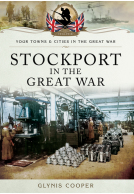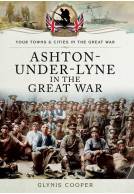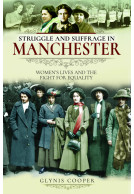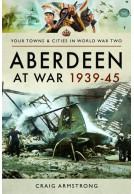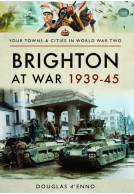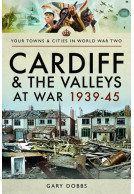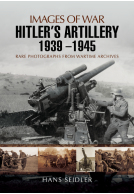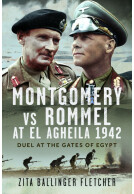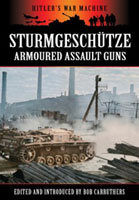Cambridgeshire at War 1939–45 (Paperback)
Imprint: Pen & Sword Military
Series: Your Towns & Cities in World War Two
Pages: 116
Illustrations: 50
ISBN: 9781473875838
Published: 22nd January 2020
(click here for international delivery rates)
Order within the next 1 hour, 40 minutes to get your order processed the next working day!
Need a currency converter? Check XE.com for live rates
| Other formats available | Price |
|---|---|
| Cambridgeshire at War 1939–45 eBook (32.1 MB) Add to Basket | £6.99 |
Few could believe that within twenty years of the war to end all wars being won the world was once again at war. Veterans of the Great War feared going through the same thing again and, even worse, many knew that this time their children would also be involved in the fighting. What had all the sacrifice been about?
Cambridgeshire, the city of Cambridge and the University of Cambridge were badly hit by the Great War with many lives lost, families ripped apart and a way of life that had changed forever. Building and economic recovery had been hindered by the Great Depression. The county was not ready to face another war nor for the problems of warfare in the air. Yet somehow the county, the city and the university all found the strength to unite against the enemy once more and ensure that Germany would never win the war.
The book chronicles life on the Home Front during the Second World War, which itself reached into every home and affected every citizen, changing the life and the face of the county. It is also a timely reminder of the difficulties, hardships, restrictions and morale faced by the city as the war dragged on, and how the local community overcame the odds that were stacked against them.
As Cambridgeshire is known for being a rural county, the book focuses upon Cambridge and the university but also the small villages in its surrounding area including the RAF bases in the area. It takes each year of the war in each chapter looking at the refugees, the start of the war, the Battle of Britain, the rationing of war, when the Americans joined in, the Bevan Boys and leads up to the revelations of war and sadly what the world would uncover during the final end of the Nazi regime. In a way this particular book gets it right in that I felt it really got a good balance between war and the effects of war locally in Cambridge, and how it had to get by and get along to survive.
UK Historian
Due to the heavy presence of the RAF and RAF bases in the area, this obviously dominates the news we read about, for example we read quite a bit about the Battle of Britain and the various bases such as Duxford, Bassingbourne and Oakington. As with all of the books written in this series, the authors know their stuff and they are very well researched and written, this is the second book in the series I have read in the series. The book strikes an excellent balance between the text and photographs suitable for the person new to the subject and the avid reader on the subject. I have made excuses for loving this particular series of books, it is in my opinion Pen and Sword at its best by far, I personally think they should sending these to every child in the UK doing GCSE and A Level history they are that good. I just hope they keep asking me to review them, for them as they are a pleasure to read.
A valuable addition to a very popular series. Cambridgeshire was a very important part of the flight deck of the concrete aircraft carrier that delivered destruction to Nazi Germany. – Highly Recommended.
Firetrench
Read the full review here
It is 5 stars from me for this one – very highly recommended – I thought that it was a great read and a great insight into what it would have been like in the towns and villages around Cambridge too – I enjoyed that the focus was not just on the city. I have another book in the series to read by this author on Derbyshire over the same period so can’t wait to get stuck in to that one now!!
Donnas Book Blog
Read the full review here
As Cambridgeshire is known for being a rural county, the book focuses upon Cambridge and the university but also the small villages in its surrounding area including the RAF bases in the area. It takes each year of the war in each chapter looking at the refugees, the start of the war, the Battle of Britain, the rationing of war, when the Americans joined in, the Bevan Boys and leads up to the revelations of war and sadly what the world would uncover during the final end of the Nazi regime. In a way this particular book gets it right in that I felt it really got a good balance between war and the effects of war locally in Cambridge, and how it had to get by and get along to survive.
Ben Davidson
Read the full review at: www.ukhistorian.co.uk
-UKhistorian
About Glynis Cooper
Glynis Cooper's family has its roots in the industrial millscapes of Manchester. She was born in Stockport, but she grew up near Bury St Edmunds and subsequently spent ten years living and working in Cambridge before returning to Manchester. Her parents were writers who inspired her enthusiasm for the written word. Glynis, who loves islands and the open countryside, trained in the dual disciplines of librarianship and archaeology. She enjoys reading, researching and writing local histories, travelling and playing chess.
Cambridge in the Great War (Paperback)
Cambridge is one of the most famous universities in the world and its library is one of only five copyright libraries in the UK. At the start of the twentieth century it was a privileged life for some, but many in Cambridge knew that war was becoming truly inevitable. What the proverbial ‘gown’ feared communicated itself to the surrounding ‘town’. Terrible rumours were rife, that the Germans would burn the university library and raise King’s College chapel to the ground, before firing shells along the tranquil ‘Backs’ of the River Cam until the weeping willows were just blackened…
By Glynis CooperClick here to buy both titles for £22.98









